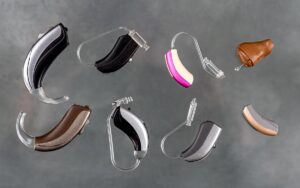Musicians are awesome! Their shows bring us so much happiness. But music is a lot more powerful when it’s loud, and that can be a hearing hazard. The musicians themselves are at an increased danger of hearing damage since they are subjected to loud music just about every day.
Whether your livelihood depends on music or not, you’ll still want to be able to hear your favorite songs when you’re in your later years of life. For musicians, preserving their hearing is the key to an extended and successful career. For the rest of us, ear protection is the key to a lifetime of musical fulfillment and enrichment.
Oftentimes it can be surprising how loud music can be
Most people would say that a jet engine is really loud.
Is music really that loud? If you ask somebody whether an acoustic guitar or a lone violin is noisy, they may not reply so quickly. Imagine their surprise when they discover the reality: That can also be very loud music! Your ears can even be harmed by classical music which can get to relatively loud volumes.
Sounds louder than 90 dB can be created by a violin, for example. A leaf blower is about this noisy. In Europe, for instance, they have regulations that require ear protection for anybody who works in a work environment where there is noise above 85 dB.
And your hearing can be seriously damaged over time if you’re working with music every day, particularly if you don’t wear hearing protection.
How can you protect your hearing?
Okay, now you’re aware that musicians need to safeguard their hearing (especially if they want to keep on rocking out for years to come). So what can musicians do to safeguard their hearing and still enjoy the music they love so much?
Well, here are a couple of easy things musicians can do:
- Track your volume: Everybody remembers the old saying “knowledge is power”. So it makes sense that you should always be aware of what levels of sound you’re subjecting your ears to. Keeping track of the volume on amps and PA systems is one factor. But you can also keep track of day-to-day volume levels of external noises using a decibel meter app that you can download on your cellphone. If the meter reads above 85dB regularly, you’ll have to address this.
- Take breaks: Your ears are the same as any other part of your body: they can become exhausted and will frequently benefit from rest. So give yourself “hearing breaks” regularly. In this way, noises won’t overpower and harm your ears. With regard to hearing, how long you’re exposed is almost as significant as how loud it is. The difference between the perfect amount of stimulation and too much can come down to taking frequent breaks.
Ear protection is important
Using ear protection is the number one most effective way to protect your hearing. A lot of musicians are concerned that ear protection will muffle the sound and impact its overall sound quality. But depending on what type of hearing protection you use, that might not always be accurate.
- Ear plugs made mainly for musicians: Most individuals are probably familiar with disposable ear plugs. They’re pretty good at blocking a lot of sound though they sometimes don’t fit comfortably. They’re not hard to get, don’t cost much, and can be thrown away easily. For musicians, they aren’t the best solution. But earplugs made just for musicians are also available at a slightly higher cost. A specialized material and modern engineering are used to help these earplugs fit snuggly in the ear and reduce external noise by about 20% while preserving the audio clarity. For musicians who need a moderate level of protection on a budget, this solution is perfect.
- Electronic earplugs: Electronic earplugs function in pretty much the same way as high-quality, non-electronic earplugs. Most of the sound will be blocked by the earplug itself. What you hear will instead be routed in by the earplug itself. This option is perfect for those who work in particularly loud environments, and who are looking for more options when it comes to controlling volume.
- In-ear monitors: Electronics are a major part of modern music. A device, known as an in-ear-monitor, is put in your ear and passes signals in electronically. It’s like a specialized little speaker for your ear, and most monitors can block out sound from the outside environment (thanks to a fairly tight fit and special design). This means you can hear exactly how you sound, at a volume you control. In-ear monitors are practical for individuals who work primarily with electronically amplified instruments.
Safeguard your career by protecting your hearing
It’s better to start protecting your hearing early, before any substantial harm occurs. Everyone can safeguard their hearing and future with hearing protection options at all price points. Remember, ear protection for a musician is an investment in your career. It’s one way to ensure you’ll be making incredible music for years (maybe even decades) to come!
Contact us so we can help you get started.
[blogcta]





